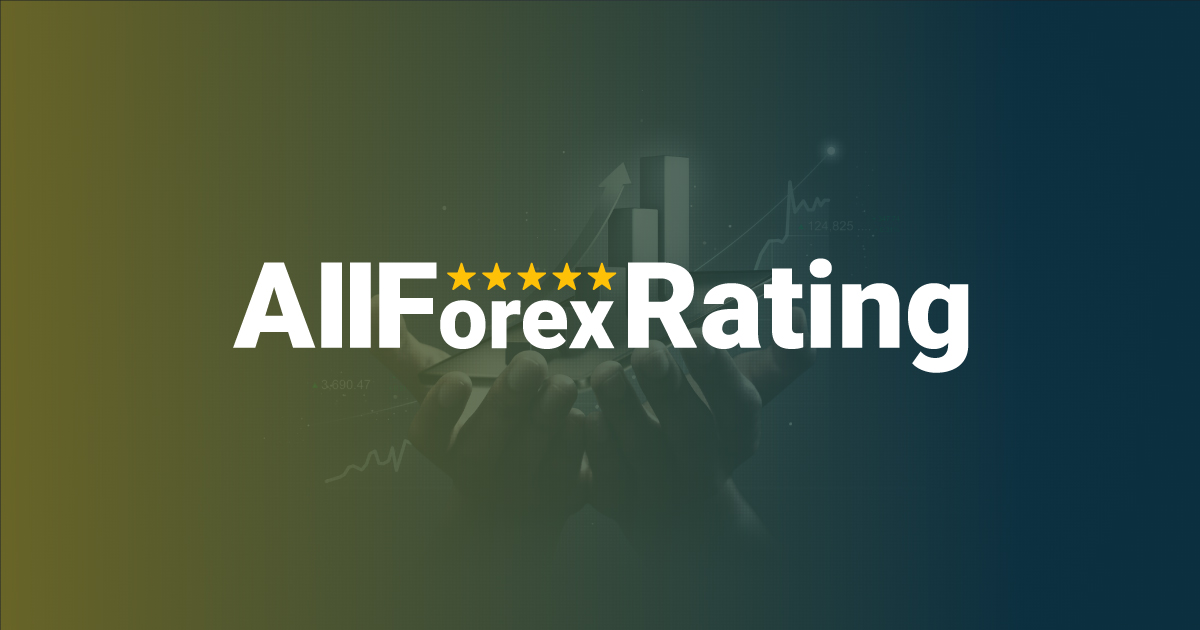How Profitable is Commodity Trading in Australia?
How Profitable is Commodity Trading in Australia?
Commodities are natural materials or goods that are either processed or unprocessed for human use. Examples of commodities include oil, precious metals, grains and natural gas.
-

- by ALLFOREXRATING.COM
- 17th October 2022 | Post Views: 1678

Commodity trading refers to buying and selling of a large range of commodities like oil, metals, and gas. While the trade of commodities has been around for hundreds of years, in the past few decades, commodity trading has become more flexible and easily profitable due to the changing markets. You can trade commodities on stock exchanges like shares, although they are highly volatile.
In this article, we take a look at what is commodity trading in Australia and how profitable it can be.
What are commodities?
Commodities are natural materials or goods that are either processed or unprocessed for human use. Examples of commodities include oil, precious metals, grains and natural gas.
Commodities are standardised products both in quality and quality. This means they often have uniform prices regardless of who or where they are produced. Commodities can be publicly traded on the stock exchange like shares. However, they differ from other financial market assets because they are physical products that can be bought and sold in the market.
Commodities can be categorised into two:
Hard commodities
Hard commodities are natural resources that are extracted or mined from the earth. They include; oil, natural gas, gold, rubber, copper, and silver.
Soft commodities
Rather than mined, soft commodities are grown and harvested. They include agricultural products like cocoa, coffee, sugar, wheat, soya beans, and corn.
What is commodity trading in Australia?
In Australia, commodities can be traded on different stock exchanges like the Australian Stock Exchange (ASX), National Stock Exchange Australia, and Sydney Stock Exchange. Commodities can be traded by stockbrokers on behalf of institutional investors, corporate investors, or retail traders.
Stock brokers in Australia must be licenced by the Australian Securities and Investments Commission (ASIC). The commission regulates and supervises the trading across all Australian licenced stock exchanges and online trading platforms.
To trade commodities in Australia, you should note applicable fees, which vary based on your stock brokers and stock exchange. Brokers may charge you a commission, deposit, withdrawal, overnight and inactivity fee for using their trading platform.
Another factor you should consider when trading commodities in Australia is the trading hour. If you want to trade commodities on international stock exchanges, you should consider the trading hour of your stock exchange.
Australian stock exchange (ASX) opens between 10 am- 4 pm AEST, Monday to Friday. Trading between 4:12 pm – 5 pm will be regarded as overnight trading and will incur an overnight fee. Conversely, the New York Stock Exchange (NYSE) and the Nasdaq open and close between 9:30 am- 4 pm US Eastern Time. That will be 1.30 am to 8:00 am AEST during summer or from 11:30 pm to 6:00 am AEST during winter. You will have to be a night owl or early riser to conveniently trade the New York exchange.
How to trade commodities in Australia
Purchasing the commodity
You can trade commodities by purchasing the physical raw material and storing it to be sold at a future date. To do this, you need to research a reliable dealer that has the commodities you want. You also need suitable storage to preserve the raw material. You can sell the commodity to the original dealer or a new buyer when the price of the commodity has risen.
However, purchasing physical commodities can be risky aside from assets like precious metals like gold bars, silver, copper, or coins that are easy to keep with little or no fear of spoilage.
Stocks
You can trade commodities indirectly by buying and selling shares of companies that deal in those commodities. You can buy shares of an oil refining company trading oil and gas or shares of an agricultural business that deals in grains to trade corn or wheat.
To trade commodities through stocks, you must ascertain the commodity you want to trade and research the company that deals in such a community. You can buy the company’s shares after you’ve ascertained they are dealing with your chosen commodity, and their shares will be a good investment.
Another intricacy of buying a company is its relationship with the commodity. The price of some commodities moves in the opposite direction of the company shares, while some move in the same direction as the company shares.
ETFs
You can gain exposure to several commodities through exchange-traded funds (ETFs). ETFs gather funds from several small investors to buy a large investment portfolio that tracks the movement of a basket of commodities. An Energy ETF may invest in stocks of several oil and gas companies and electric car companies.
ETFs democratise commodity trading because they expose you to several commodity companies and sectors despite your limited investment and trading knowledge. Instead of building a portfolio and struggling to trade by yourself, your investments will be managed by professional stock investors. ETFs also diversify your risk across several commodity classes instead of investing in just one commodity or sector.
You can trade commodity ETFs through a brokerage trading platform because they are listed on stock exchanges. However, ETFs may cost additional charges for portfolio management.
CFDs
A contract for difference (CFD) is an agreement to buy or sell commodities at a price in the future. CFDs are not trading of an asset, but they are derivative contracts that only speculate price movements of a commodity.
This is how it works: as a CFD trader, you may enter a contract with a broker or investor to buy a certain quantity of a commodity at a specified price in the future. At the future date, you will not exchange the physical commodity. Instead, you will close your position and make a profit or incur a loss according to the new commodity price.
If the price of the commodity in question rises higher than your contract price, you will sell the contract to another investor and make a profit. Conversely, if there is a price drop, you will have to sell it at a lower price and incur a loss. You don’t have to wait till the contract expires before you close your trade, you can do so before the due date.
To trade CFDs you need a brokerage account with a reliable trading platform. Your broker can grant you a margin to supplement your trading capital to increase your profit. This margin often increases the risk of CFDs compared to trading stocks because your loss can be magnified just as you can make more profit.
The success of your CFD trading depends on your trading platform to an extent. You should look for trading platforms that expose you to several commodities, charge reasonable fees, and offer good trading software, reliable market data, and learning resources.
Blueberry Markets is a CFD trading platform that allows you to trade commodities, indices, shares, and cryptocurrency CFDs through tight spreads and wide leverage.
Write a Comment
How Profitable is Commodity Trading in Australia?
Commodities are natural materials or goods that are either processed or unprocessed for human use. Examples of commodities include oil, precious metals, grains and natural gas.

Commodity trading refers to buying and selling of a large range of commodities like oil, metals, and gas. While the trade of commodities has been around for hundreds of years, in the past few decades, commodity trading has become more flexible and easily profitable due to the changing markets. You can trade commodities on stock exchanges like shares, although they are highly volatile.
In this article, we take a look at what is commodity trading in Australia and how profitable it can be.
What are commodities?
Commodities are natural materials or goods that are either processed or unprocessed for human use. Examples of commodities include oil, precious metals, grains and natural gas.
Commodities are standardised products both in quality and quality. This means they often have uniform prices regardless of who or where they are produced. Commodities can be publicly traded on the stock exchange like shares. However, they differ from other financial market assets because they are physical products that can be bought and sold in the market.
Commodities can be categorised into two:
Hard commodities
Hard commodities are natural resources that are extracted or mined from the earth. They include; oil, natural gas, gold, rubber, copper, and silver.
Soft commodities
Rather than mined, soft commodities are grown and harvested. They include agricultural products like cocoa, coffee, sugar, wheat, soya beans, and corn.
What is commodity trading in Australia?
In Australia, commodities can be traded on different stock exchanges like the Australian Stock Exchange (ASX), National Stock Exchange Australia, and Sydney Stock Exchange. Commodities can be traded by stockbrokers on behalf of institutional investors, corporate investors, or retail traders.
Stock brokers in Australia must be licenced by the Australian Securities and Investments Commission (ASIC). The commission regulates and supervises the trading across all Australian licenced stock exchanges and online trading platforms.
To trade commodities in Australia, you should note applicable fees, which vary based on your stock brokers and stock exchange. Brokers may charge you a commission, deposit, withdrawal, overnight and inactivity fee for using their trading platform.
Another factor you should consider when trading commodities in Australia is the trading hour. If you want to trade commodities on international stock exchanges, you should consider the trading hour of your stock exchange.
Australian stock exchange (ASX) opens between 10 am- 4 pm AEST, Monday to Friday. Trading between 4:12 pm – 5 pm will be regarded as overnight trading and will incur an overnight fee. Conversely, the New York Stock Exchange (NYSE) and the Nasdaq open and close between 9:30 am- 4 pm US Eastern Time. That will be 1.30 am to 8:00 am AEST during summer or from 11:30 pm to 6:00 am AEST during winter. You will have to be a night owl or early riser to conveniently trade the New York exchange.
How to trade commodities in Australia
Purchasing the commodity
You can trade commodities by purchasing the physical raw material and storing it to be sold at a future date. To do this, you need to research a reliable dealer that has the commodities you want. You also need suitable storage to preserve the raw material. You can sell the commodity to the original dealer or a new buyer when the price of the commodity has risen.
However, purchasing physical commodities can be risky aside from assets like precious metals like gold bars, silver, copper, or coins that are easy to keep with little or no fear of spoilage.
Stocks
You can trade commodities indirectly by buying and selling shares of companies that deal in those commodities. You can buy shares of an oil refining company trading oil and gas or shares of an agricultural business that deals in grains to trade corn or wheat.
To trade commodities through stocks, you must ascertain the commodity you want to trade and research the company that deals in such a community. You can buy the company’s shares after you’ve ascertained they are dealing with your chosen commodity, and their shares will be a good investment.
Another intricacy of buying a company is its relationship with the commodity. The price of some commodities moves in the opposite direction of the company shares, while some move in the same direction as the company shares.
ETFs
You can gain exposure to several commodities through exchange-traded funds (ETFs). ETFs gather funds from several small investors to buy a large investment portfolio that tracks the movement of a basket of commodities. An Energy ETF may invest in stocks of several oil and gas companies and electric car companies.
ETFs democratise commodity trading because they expose you to several commodity companies and sectors despite your limited investment and trading knowledge. Instead of building a portfolio and struggling to trade by yourself, your investments will be managed by professional stock investors. ETFs also diversify your risk across several commodity classes instead of investing in just one commodity or sector.
You can trade commodity ETFs through a brokerage trading platform because they are listed on stock exchanges. However, ETFs may cost additional charges for portfolio management.
CFDs
A contract for difference (CFD) is an agreement to buy or sell commodities at a price in the future. CFDs are not trading of an asset, but they are derivative contracts that only speculate price movements of a commodity.
This is how it works: as a CFD trader, you may enter a contract with a broker or investor to buy a certain quantity of a commodity at a specified price in the future. At the future date, you will not exchange the physical commodity. Instead, you will close your position and make a profit or incur a loss according to the new commodity price.
If the price of the commodity in question rises higher than your contract price, you will sell the contract to another investor and make a profit. Conversely, if there is a price drop, you will have to sell it at a lower price and incur a loss. You don’t have to wait till the contract expires before you close your trade, you can do so before the due date.
To trade CFDs you need a brokerage account with a reliable trading platform. Your broker can grant you a margin to supplement your trading capital to increase your profit. This margin often increases the risk of CFDs compared to trading stocks because your loss can be magnified just as you can make more profit.
The success of your CFD trading depends on your trading platform to an extent. You should look for trading platforms that expose you to several commodities, charge reasonable fees, and offer good trading software, reliable market data, and learning resources.
Blueberry Markets is a CFD trading platform that allows you to trade commodities, indices, shares, and cryptocurrency CFDs through tight spreads and wide leverage.
| # | Forex Broker | Year | Status | For | Against | Type | Regulation | Leverage | Account | Advisors | ||
| 1 |  |
JustMarkets | 2012 | 36% | 4% | ECN/STP | FSA, CySEC, FSCA, FSC | 1:3000* | 1 | Yes | ||
|---|---|---|---|---|---|---|---|---|---|---|---|---|
| 2 |  |
Hantec Markets | 1990 | 35% | 6% | ECN/STP | ASIC, FCA, FSA-Japan, FSC, JSC | 1:2000* | 100 | Yes | ||
| 3 |  |
Valetax | 2023 | 35% | 1% | ECN/STD | FSC | 1:2000* | 10 | Yes | ||
| 4 |  |
KCM Trade | 2016 | 32% | 3% | ECN/STD | FSC | 1:400* | 100 | Yes | ||
| 5 |  |
Plotio | 1983 | 31% | 2% | STP | HKGX, ASIC, SCB | 1:300* | 200 | Yes | ||
| 6 |  |
FISG | 2011 | 30% | 1% | ECN/STD | FSA, CySEC, ASIC | 1:500 | 0.01 | Yes | ||
| 7 |  |
ATFX | 2017 | 25% | 3% | Broker/NDD | FCA, CySEC, FSCA | 1:400* | 100 | Yes | ||
| 8 |  |
Octa | 2011 | 20% | 3% | ECN/STD | Regulation: CySEC, MISA, FSCA and FSC | 1:1000* | 5 | Yes | ||
| 9 |  |
Youhodler | 2018 | 20% | 2% | Exchange | EU (Swiss) licensed | Up to 1:500 | 100 | Yes | ||
| 10 |  |
Uniglobe markets | 2015 | 20% | 3% | ECN/STP | Yes | Up to 1:500 | 100 | Yes | ||
| 11 |  |
IEXS | 2023 | 20% | 6% | ECN/STP | ASIC, FCA | Up to 1:500 | 100 | Yes | ||
| 12 |  |
TradeEU | 2023 | 18% | 4% | CFDs | CySEC | 1:300* | 100 | Yes | ||
| 13 |  |
RoboForex | 2009 | 16% | 4% | ECN/STD | FSC, Number 000138/333 | 1:2000* | 10 | Yes | ||
| 14 |  |
Axiory | 2011 | 15% | 5% | Broker, NDD | IFSC, FSC, FCA (UK) | 1:777* | 10 | Yes | ||
| 15 |  |
FBS | 2009 | 13% | 4% | ECN/STD | IFSC, CySEC, ASIC, FSCA | 1:3000* | 100 | Yes |











